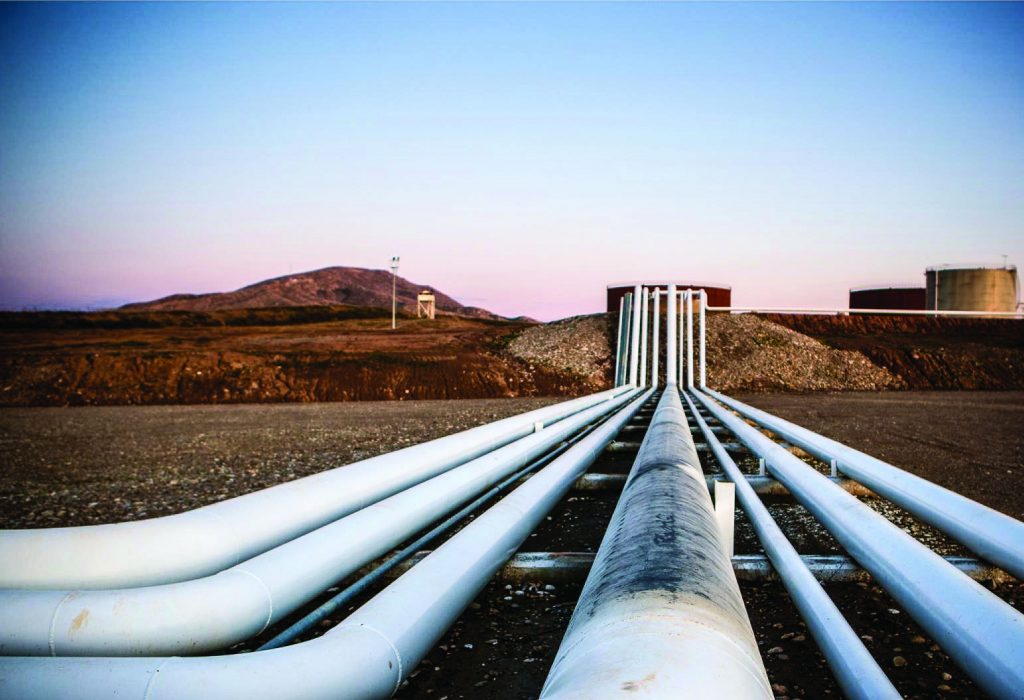Sweet and Sour Corrosion
High pressures during the transportation of crude oil increase the concentration of dissolved gases. In sweet corrosion, carbon dioxide dissolves in water to form carbonic acid, which then reacts with the iron in the metal work to form iron carbonate. This causes pitting in the metal work and it is this corrosion that subsequently weakens the system.
In some crude oils the presence of sulphate reducing bacteria leads to the formation of hydrogen sulphide gas, which is the cause of sour corrosion. Although this type of corrosion is not as common as sweet, when it is present in a system it is more destructive. Hydrogen sulphide reacts with the steel surfaces to produce iron sulphide, leaving pitting in the steel work. Moreover, hydrogen gas is produced and collects on the surface, causing hydrogen blistering and further weakening of the pipework.Water Soluble Corrosion Inhibitors
Our range of water soluble corrosion inhibitors provide superior protection in high water cut systems. Finding effective corrosion inhibitors to suit these environments is becoming increasingly important as the average water cut of the crude oil rises.
Oil Soluble Corrosion Inhibitors
Oil soluble corrosion inhibitor formulations contain several components. We offer a range of oil soluble corrosion chemistries that can protect metal components, equipment and pipelines from failure throughout all stages of oil production.
Neutralising Imidazolines
Choosing the right acid is an important step which will depend upon specific field conditions. The acid you choose to use can significantly enhance the corrosion inhibitor’s performance, as well as improving solubility. Neutralising imidazoline with both acetic acid and dimer acid produces oil soluble/water dispersible corrosion inhibitors. This gives you the opportunity to choose the right balance for your requirements.
Contact us to understand more about our formulations using our products.


.jpg?width=600&name=My%20Post%20Copy%203%20(1).jpg)


